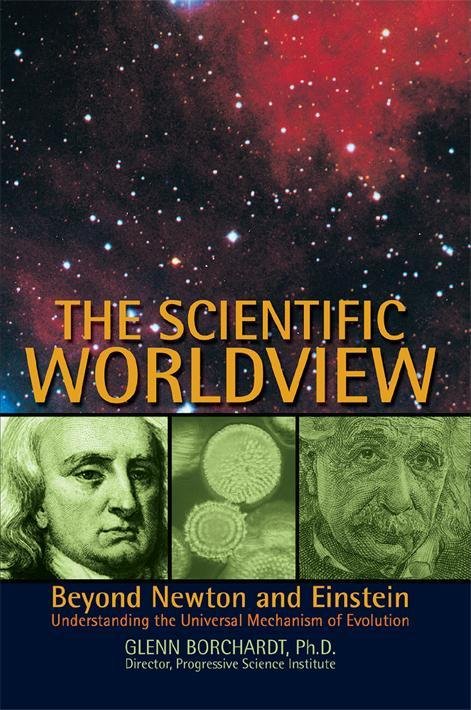After
I suggested that he read "The Scientific Worldview," joogabah wrote:
Yes, I did read it. I'm trying to express
religious ideas from a materialist paradigm without contradiction.
[GB:
Sorry, joogabah, but that cannot be done. That is because materialism and
immaterialism are opposing assumptions, as I explained in the discussion of the
First Assumption of Science. Typically, an immaterialist will say: “There must
be something beyond matter in motion.” That is why we define “things” as
xyz portions of the universe. “Matter” is the abstraction for “all things,” so
the immaterialist must be using a different definition for “something,” which
is purely imaginary. That “something” cannot possibly exist, because existence can
only be a property of an xyz portion of the universe.
Of
course, we all need to study religious imaginings so that we will understand
the 90% of the folks who live their lives by them. While most of those
imaginings have no physical evidence to support them, they still have an
evolutionary purpose: to instill and enforce loyalty.]
The
reason is that I think religion is doing something essential in human societies
that is not considered when one simply views it as "false".
[GB:
Social groups without loyalty could not exist in a hostile world. Overpopulation
by neighboring tribes forces those tribes to seek resources necessary for their
survival despite the necessity to trespass or invade. In those cases, war is inevitable.
That is why religion and war go hand in hand. However, loyalty can be
engendered without religion. Many atheistic social groups do just fine without
it.]
Religion is a commentary on the human
condition and it addresses our linguistically determined subjectivity, which is
the only reality we actually experience.
[GB:
Sorry, but subjectivity does not require language. Most animals have subjectivity
whether they have language or not.]
To
reduce reality to matter in motion is to ignore that part of it that exists as
us.
[GB:
Sorry, but we are all microcosms, portions of the universe consisting of matter
in motion. Anything that “exists” is matter.]
We
are a jumble of myriad linguistic constructs.
[GB:
False. We consist of matter. We use linguistic
constructs; we are not made up of linguistic constructs.]
That
is what animates us.
[GB:
We are animated by the univironment, the infinite matter in motion inside and
outside us. Language is unnecessary for us to be animated.]
That
is our "soul".
[GB:
There is no such thing. That belief comes straight out of religion.]
It
is thousands of years old, and it has become the primary information system in
our species, eclipsing DNA, because of its ability to bring about change orders
of magnitude faster than biological evolution.
[GB:
False. Language is part of biological evolution.
All evolution is at times slow and at times fast.]
It
is that creative process and its seemingly limitless potential that we worship
as our creator, because language precedes us even tho the species developed it
- new individuals are literally created by it.
[GB:
Sorry, but “worship” is supplication to
another microcosm (predator, priest, president, or other microcosm powerful enough
to do us harm). We are not created by
language; we create language. That is something that an immaterialist like
Deepak would dream up, with this idea that consciousness created the universe
instead of the other way around.]
There
needs to be a part of materialism that addresses this, and until there is,
religion will have something that more closely resembles lived experience,
because it addresses human subjectivity and rational,
linguistic meaning.
[GB:
Since the universe and ourselves consist only of matter in motion, we have no
choice but to understand subjectivity and “rational, linguistic meaning” in
those terms. All language requires a subject (matter) and a verb (motion).]
We
are not our bodies.
[GB:
Egads! What else could we be? When our bodies are gone, we are gone.]
Our
bodies enable our existence.
[GB:
True.]
When
I say “Glenn”, I am addressing years of linguistic, rational development, not
human tissue.
[GB:
Sorry, but I do not pretend to be anything else, although that human tissue
does seem to have recorded a bit of linguistic, rational
stuff.]
Not
matter, or the blind motion of matter, but consciously perceived meaning, whose
determinants are not the collision of particles but conscious, rational
deliberation.
[GB:
Sorry, but matter is not always blind. Materialists are careful not to
denigrate matter, because that is what we are, including the 80 billion neurons
that help us to “consciously perceive meaning.” Consciousness is the motion
performed by those neurons. Like all microcosms in the infinite universe, they
cannot operate without the “collision of particles” that you seem to despise.]
For the latest on no-nonsense physics and cosmology, see:
Borchardt, Glenn, 2017, Infinite Universe Theory: Berkeley, California, Progressive Science Institute, 327 p. [http://go.glennborchardt.com/IUTebook].








1 comment:
Joogabah, It all gets a lot easier if you just equate "God" with nature. Read your Spinoza.
Post a Comment